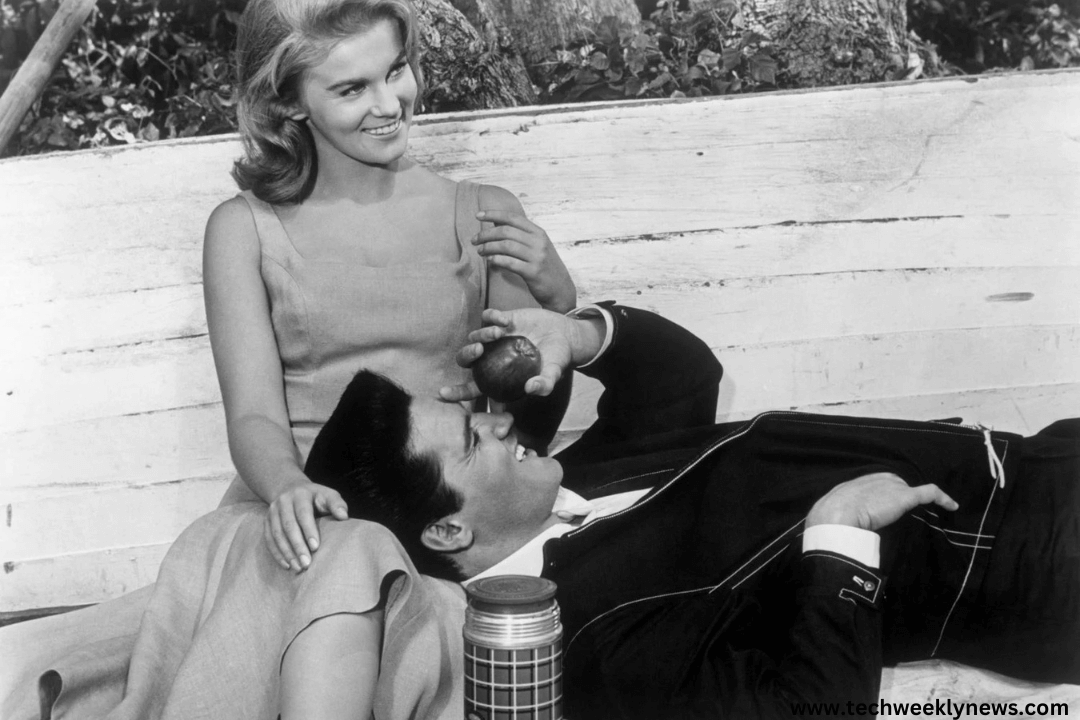The famous romance between Elvis Presley and Priscilla Beaulieu was not anticipated when they first met in 1959. Elvis was 24 years old when they first met, and Priscilla was just 14, yet their relationship would enthrall people all across the world. One of the most enduring aspects of their relationship was the affectionate nickname Elvis gave Priscilla: “Satnin.” In this article, we’ll explore why did elvis call priscilla satnin the significance of the nickname, and the dynamics of their relationship during their years together.
The Origins of Elvis and Priscilla’s Relationship
In order to see why Elvis referred to Priscilla as “Satnin,” it is necessary to examine their relationship in further detail. When Elvis was serving in the military and stationed in Germany in 1959, he met Priscilla. At a gathering, Elvis noticed Priscilla, who was then residing in Germany with her family. Despite the instant appeal, some people were taken aback by the age difference. Elvis was 24 at the time, and Priscilla was just 14. Nevertheless, despite the challenges and arguments that surrounded their relationship, the two remained close.

The bond between Priscilla and Elvis became more robust over time. They kept up a long-distance correspondence after Elvis returned to the US, and Priscilla finally relocated to Memphis to live with him. Their relationship progressed, and Elvis eventually proposed to Priscilla in 1966. The couple married in May 1967 and had one daughter, Lisa Marie Presley, born in 1968.
Though their marriage ended in divorce in 1973, the bond between Elvis and Priscilla remained, with both of them continuing to share mutual respect and affection for one another.
The Significance of the Nickname “Satnin”
One of the most intriguing elements of Elvis and Priscilla’s relationship is the nickname Elvis gave to Priscilla: “Satnin.“ At first glance, this may seem like an unusual choice, but as with many of Elvis’s nicknames for those he loved, it was a term of endearment that reflected a deeper emotional connection.
The Association with Satin
The most straightforward explanation for why Elvis called Priscilla “Satnin“ lies in the word’s association with luxury, softness, and beauty. Satin is a smooth, glossy fabric known for its lustrous appearance, often used in high-end fashion and elegant garments. By calling Priscilla “Satnin,“ Elvis may have been alluding to her beauty and elegance. The nickname reflects the way he viewed her—someone who was graceful, refined, and unique.
For Elvis, who often used nicknames as a way to express his affection, “Satnin“ was likely an affectionate and poetic way to describe the qualities he admired in Priscilla. Satin, as a fabric, is smooth, soft to the touch, and delicate—much like the qualities Elvis may have seen in her.
A Play on Words and Individual Relationships
Another possibility is that Elvis’s nickname for Priscilla was a playful twist on the word “Satin.” It’s worth noting that Elvis was known for his creativity and sense of humor, and he often gave people unique, quirky nicknames. By shortening “satin“ to “Satnin,“ Elvis may have added a personal and distinctive touch, making the nickname feel even more intimate.
This play on words also reflects the way that couples often develop their private language or terms of endearment. For Elvis and Priscilla, “Satnin“ became a private code—a way for Elvis to express his feelings in a way that was uniquely theirs.
Symbol of Softness and Sensitivity
It was well known that Elvis Presley had a complicated personality. He was a symbol of rebellious youth, a larger-than-life character, and the king of rock ‘n’ roll. Conversely, he was empathetic and frequently looked for love and stability in his partnerships. The moniker “Satnin” can also allude to Elvis’s desire to look out for and shield Priscilla. The softness of satin could symbolize the tenderness and care Elvis wanted to convey to Priscilla, someone he viewed as a cherished companion.
Moreover, satin’s sheen could symbolize the way Elvis saw Priscilla as a radiant and essential part of his life. In a world where Elvis was surrounded by fame and adoration, Priscilla may have represented a grounding force for him—someone who was both elegant and down-to-earth.
Elvis’s Affectionate Nature and Nicknaming Tradition
Elvis Presley was famous for his affection for those he loved. An essential aspect of his personality was his propensity to use endearing nicknames to describe his interactions with friends, family, and romantic partners. He had a reputation for being incredibly loving, not only with Priscilla but also with his family, close friends, and even his pets.
- “Baby”: Elvis also used this expression to show his love for people who lived close to him.
- “Sweets”: This was another term of endearment that Elvis used, reflecting his fondness for those around him.
- “Sugar”: Similar to “Sweets,“ this was another affectionate nickname that Elvis used, showing the deep love and tenderness he felt for those closest to him.
These nicknames served as a way for Elvis to express his feelings in a more personal and intimate manner, and “Satnin“ was simply another example of this. They were part of his larger tradition of using playful and affectionate terms to build bonds with those he cared about.
Elvis and Priscilla’s Marriage: Challenges and Affection
Elvis and Priscilla’s marriage, while filled with love and affection, was not without its challenges. In the early years of their marriage, Priscilla struggled with the pressures of being married to an international superstar. Elvis’s demanding career, along with his struggles, put a strain on their relationship. Nonetheless, despite the difficulties, their connection remained strong, and they continued to share moments of affection, as evidenced by the nickname “Satnin.”
The public also witnessed the tender side of their relationship through interviews, photographs, and films. Elvis often spoke highly of Priscilla, praising her beauty and character. Even after their divorce in 1973, Elvis and Priscilla remained close friends, co-parenting their daughter, Lisa Marie, and maintaining a solid bond. The nickname “Satnin“ continued to symbolize the love they shared, even if their romantic relationship had come to an end.
The Legacy of Elvis and Priscilla’s Relationship
Although Elvis and Priscilla’s marriage ended in divorce, their story remains a significant part of both their lives and the broader history of celebrity culture. The nickname why did Elvis call Priscilla satin endures as a symbol of the affection they shared during their time together? It is a reminder of their deep emotional connection and the special bond they had despite the complexities of their lives in the public eye.
Elvis’s affection for Priscilla, embodied through the nickname “Satnin,“ continues to fascinate fans and historians alike. It adds another layer of depth to their relationship, one that was often complicated but always filled with genuine love and affection.
Conclusion: A Tender Tribute to Love
The question of why did Elvis call Priscilla satin offers a glimpse into the tenderness, creativity, and affection that defined their relationship. Whether referring to Priscilla’s beauty, her elegance, or simply as a playful term of endearment, “Satnin“ symbolizes the deep emotional connection between the two.
To mention just one example, Elvis used the nickname “Satnin” to express his love and compassion for the individuals he cared about. It is proof of his and Priscilla’s romance, which continues to captivate the public’s attention despite its turbulent past.
The story of Elvis and Priscilla’s relationship and the enduring nature of the nickname “Satnin,“ reminds us of the timeless and universal nature of love—how it can transcend challenges and remain an integral part of a person’s identity, even long after the relationship itself has evolved.
You may also read: Nikolai Peter Ingraham: A Rising Star in [Relevant Field]
